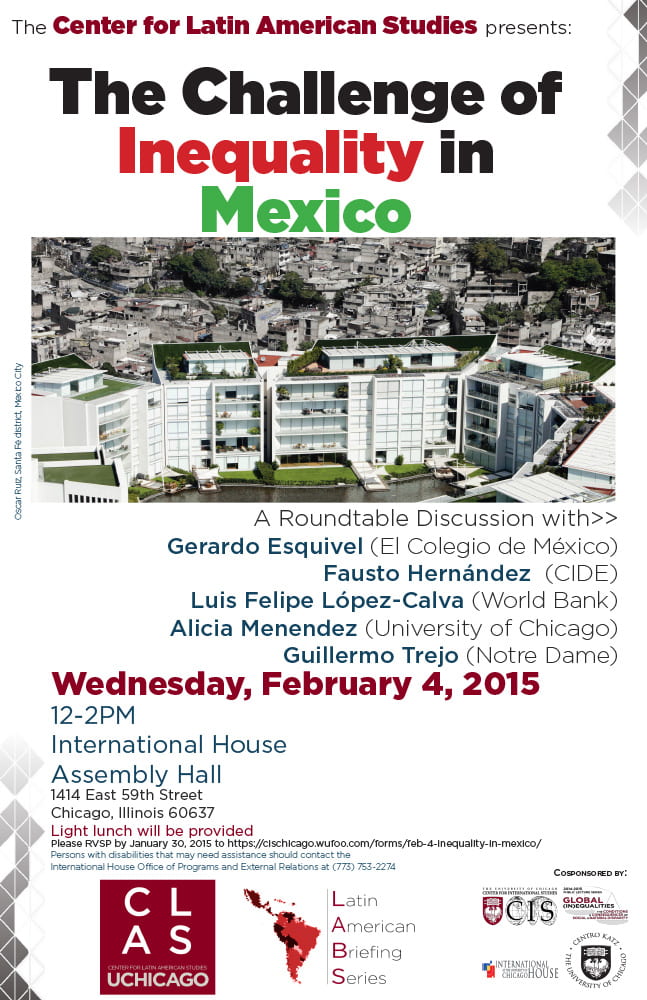Wednesday, February 4, 2015
12:00PM-2:00PM
Assembly Hall
Latin America is the most unequal region in the world. Despite a decade of economic growth and poverty reduction efforts, inequality still afflicts the largest economies of the region, including Mexico. Between the 1950s and 1980s, Mexico’s GDP grew at an average rate of 6.5 percent in what became known as the “Mexican Miracle.” Yet the debt crisis that followed in the 1980s not only curtailed growth, but also initiated a series of structural reforms that led to the privatization of industries, the reduction of public expenditure, the signing of free trade agreements (such as NAFTA), and the enactment of fiscal policies to achieve macroeconomic stability and boost foreign investment. Thirty years after these neoliberal reforms, 54 million Mexicans continue to live below the poverty line and over 20 million cannot meet basic household needs. The income of the richest 10 percent is still 36 times higher than the bottom 10 percent, a group overwhelmingly comprised of ethnic minorities, peasants, women, youth, and persons with disabilities. In this event, we will ask our panelists to reflect on the problems and challenges that inequality poses in Mexico.
Panelists include:
Fausto Hernández (Professor of Economics at the Centro de Investigación y Docencia Económicas, and Visiting Fellow, Kellogg Institute–Notre Dame)
Guillermo Trejo (Associate Professor of Political Science, Notre Dame)
Gerardo Esquivel (Profesor at the Centro de Estudios Económicos of El Colegio de México)
Luís Felipe López-Calva (Lead Economist and Regional Poverty Advisor, The World Bank)
Alicia Menendez (Harris School of Public Policy, University of Chicago)
Free and open to the public. Light lunch will be provided.
Sponsored by the International House Global Voices Lecture Series, the University of Chicago Center for Latin American Studies: Latin American Briefing Series, Latin American Matters, the Katz Center for Mexican Studies, and the University of Chicago Center for International Studies.
